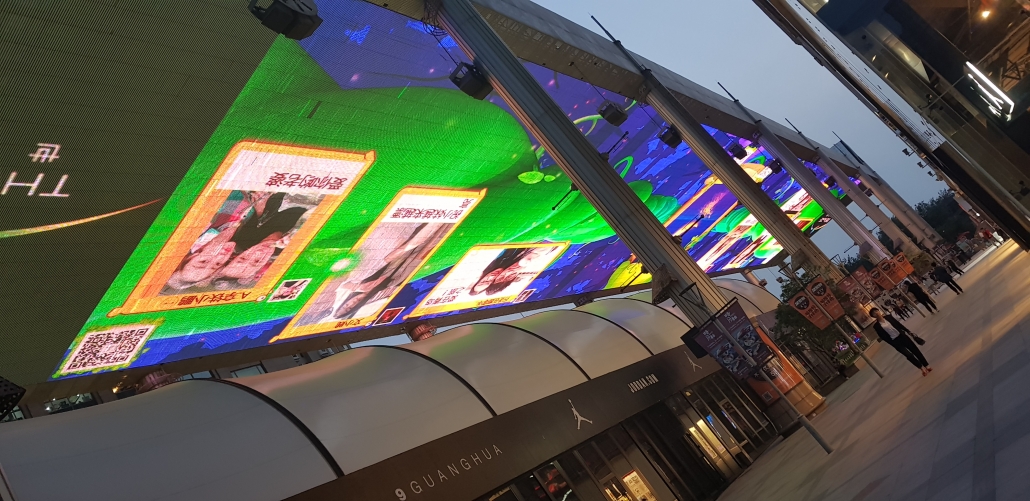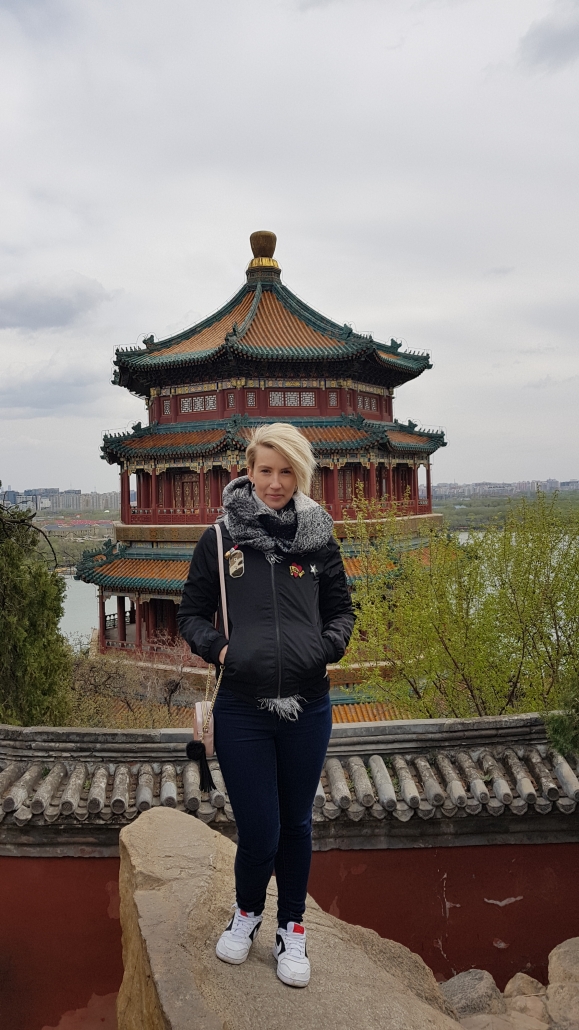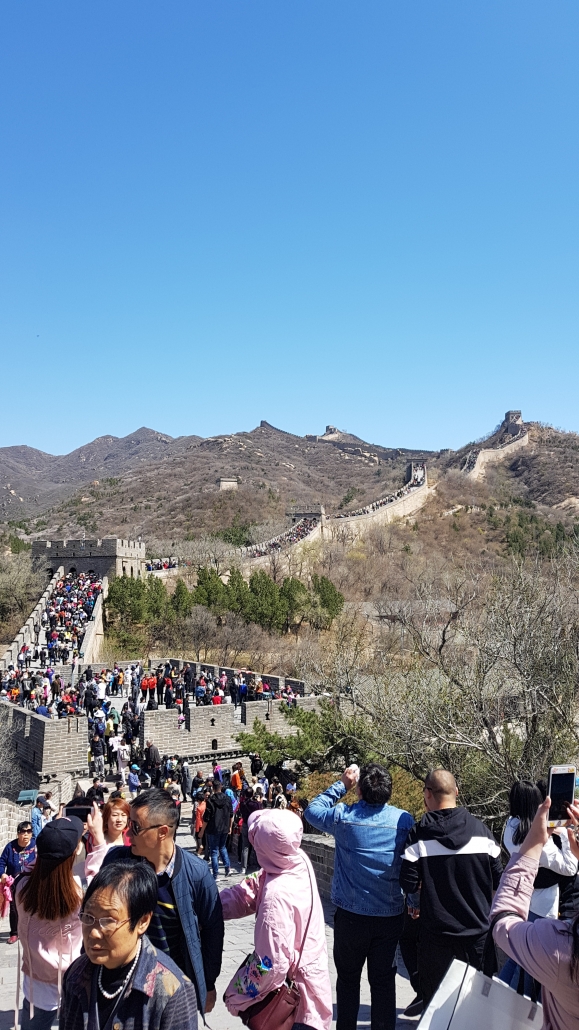- China – it’s like another world. - 16. May 2018
Corinna Gleich, Junior Digital Media Planner at Plan.Net Media, has travelled to China to work for three months as part of an internal company exchange programme. She’s been at the House of Communication in Beijing for four weeks now, and is starting to feel at home in China’s capital city. We asked her to write about all about the surprises that living there has brought so far. This report is based on her experiences during the first four weeks.
When I arrived in China, the first thing I had to come to terms with was that my phone was as good as useless – Google, Facebook and Instagram were all blocked and WhatsApp didn’t work. I could get around this with a VPN, though. Speaking English wasn’t an option, hardly anyone here can speak it and that meant me having to work hard to learn Chinese. At first, I could only pay for things with cash (German bank cards aren’t usually accepted and there are only a few ATMs that work with Visa, for example), so I had to open a Chinese bank account as soon as possible to be able to pay using WeChat Pay. I needed to have a local mobile number before I could get a bank card. Luckily, this was quick and cheap to set up. I could set up WeChat with my new number and get a bank card (I was lucky in this respect, too, as the rules for bank cards were recently changed and foreign nationals now have to have lived in the country for at least a year to be able to request one). Getting money into the account from back home was the next challenge, but WeChat had that covered. WeChat makes it easy for another user to transfer money; this money doesn’t go into the account, but rather into the WeChat Wallet. Everything’s done on your mobile here – which is why there are a few more handy apps to help you go about your day, such as Alipay (WeChat’s biggest competitor and which has more users in some cities), Didi (Uber), Ofo (for cycle hire), Air Matters (an air pollution analyser), Dianping (Yelp), E (for ordering food) and translation apps.
The office in Beijing is located right inside a shopping mall. The work day in China is almost exactly the same as in Germany. The only thing is you have a much later start. Turning up between 10 and 12 is normal; you just work longer in the evening to make up for it. It’s also not unheard of to just take a power nap while at work. There are lots of cushions and cuddly toys dotted about to make the place comfortable. They drink coffee here too. You can order food and drinks round the clock. Generally speaking, the food is much cheaper than in Germany – three euros gets you a decent meal. You can also have bubble tea and other drinks delivered. Delivery people race on their scooters at breakneck speed, up and down streets and even steps!

Shopping mall right next to the office with big screens on the ceilings
The way people interact with and consume media here is completely different. Everyone wants to stand out from the crowd without really worrying about data protection. Live streaming is the big thing over here; you can watch a person eat their dinner, for example, and send them virtual gifts that you have to buy. This is how live streamers make their money. There’s a parallel for everything – WeChat is like Facebook, Sina Weibo like Twitter, Youku like YouTube and Nice like Instagram. There’s shops on every corner (I’ve never seen so many shopping centres in such close proximity), and great importance is attached to brands; Western brands are particularly fashionable. German brands (some that I didn’t even know existed) are seen as must-haves in electronics. Owning an iPhone is the norm here.
Work and everyday life aside, sightseeing in Beijing is amazing for a tourist! There’s so much to discover and ticket prices are only around two to three euros. Public transport is cheap, too (the subway and bus are around 50 cents a journey). You can also travel to nearby big cities (e.g. Shanghai, Hangzhou) in no time with the high-speed train. A highlight for me so far was the Summer Palace, which is just outside of Beijing on a small hill surrounded by a lake. I was actually quite disappointed by the Forbidden City; the architecture was very impressive, but there wasn’t much to see in any of the buildings and some were closed altogether. Hangzhou is definitely the place to visit for nature lovers (around five hours from Beijing by high-speed train); it’s rare to see so much green in a city, even in Germany.

Corinna at the Summer Palace

Another tourist attraction: The (crowded) Great Wall
My main takeaway from this experience so far is that Beijing is so much more than just a big city; you have to get used to the crowds and fast pace of life here. To me, China and Beijing are like a completely different world. If you want to discover something totally new like I did, you’d really love it over here.
This page is available in DE




